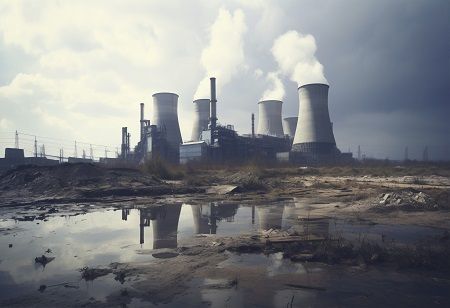
Core Energy, Flowserve Partner on Coolant Pumps for Nuclear Plants
- US clears Flowserve to share PCP technology
- Core Energy to make pumps with DAE approval
- Boosts nuclear self-reliance, Viksit Bharat 2047
Core Energy Systems has entered into a collaboration with Flowserve Corporation in the US to locally manufacture primary coolant pumps (PCP) for nuclear power plants in India.
The agreement is possible after Flowserve received approval from the US Department of Energy, an agreement that gave Flowserve permission by specific authorization under 10 CFR part 810 to transfer PCP technology to India.
PCPs are some of the most important components of a nuclear power plant because they continuously circulate the coolant that removes heat from the reactor core, ensuring safety of the reactor, protects equipment and provides safe and reliable use for power generation.
Core Energy and Flowserve went on to state in a joint release that India's Ministry of Atomic Energy also approved moving forward with the company in order for Core Energy to move ahead and manufacture these high-tech systems domestically.
Also Read: AI to Create Jobs, Unlock Growth Opportunities: Piyush Goyal
The announcement comes shortly after India has begun its course in expanding clean energy capacity, aligned with India's vision for Viksit Bharat 2047.
The government recently stated plans to amend the Atomic Energy Act and the Civil Liability for Nuclear Damage Act, with the intention to allow more private participation in the civil nuclear sector, which has been historically driven by the state.
For Flowserve, this opportunity expands on flowserve engineering's long history in India, with over 5,000 pumps and 15,000 valves already installed in India across a range of industries.
By localizing PCP manufacturing, this partnership will aim to help bolster India's nuclear energy ecosystem, reduce dependency on nuclear component imports, and create a level of self-reliance in advanced energy technology.
This opportunity is a real first in India-United States energy cooperation. Additionally will help to build our mutually beneficial aspirations to advance clean, safe, and sustainable energy technology.

.jpg)